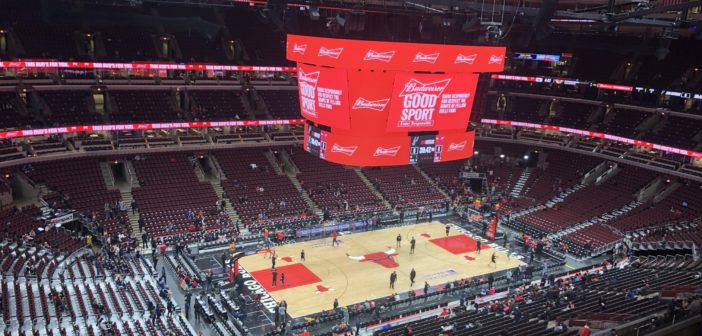During this time of the coronavirus crisis, the sports world is on pause. Every stadium is completely empty, quickly gathering layers of dust.
However, stadiums were slowly gathering dust well before the coronavirus. Many fans are choosing to stay at home to watch rather than go in person.
According to “These pro sports teams are running out of fans” from USA Today, each of the big four sports leagues (NFL, NBA, NHL and MLB) from 2008 to 2018, saw a decrease in their attendance.
But why are fans not going to games anymore? Well, there is a multitude of reasons why a fan wouldn’t want to go. The biggest being ticket prices. Let’s use the NFL as an example.
According to statista.com, the average NFL ticket price in 2019 was roughly $102. That kind of price adds up eventually. It isn’t logical to pay that kind of money when you can watch the big game for free at home.
Besides, every sports league has online packages that fans can buy to watch games. These packages are hard to pass up. A fan of MLB could pay around $94 to get every game of their favorite team, as opposed to going to one game with an average MLB ticket price of $53.
Think about it, being able to watch every single game in the comfort of your home instead of going to just one game sounds appealing. Of course, you could argue that ticket prices are not that costly. But you can’t forget all the other costs that come with going to sporting events.
Sports fans must pay for beverages, food, parking and the list goes on. All of that adds up to a more pricey experience than the ticket price shows. It is a turn off to fans who can just stay at home for a significantly better price.
Don’t forget about the time commitment either. Sporting events can take up many hours. Driving through traffic to get there, the game itself and heading home can take up a lot of valuable time. Doesn’t it sound nicer to avoid traffic and broadcast the game on your TV while multitasking on important things you must do?
Now going to a game in person is a unique experience, but that experience can be ruined for numerous reasons. A bad fan experience can be a major reason why someone would rather choose to stay home.
Going to sporting events has a social aspect to it. You are most likely going to be sitting next to people that you don’t know. It’s the luck of the draw. You might get to sit by respectful fans or fans that are rude and extremely drunk. This is a make or break for fans as they could easily choose to save their money and avoid these unpleasant moments.
With fans choosing to stay at home instead of going in person, it would seem like the major sports leagues should be stressing. However, they aren’t because they’re still generating money.
According to “Nobody’s Going to Sports in Person Anymore. And No One Seems to Care” from Intelligencer, in 2017 “the NFL brought in revenues of more than $17 billion, and Major League Baseball earned more than $10 billion, records for both sports.”
Sports leagues’ TV packages are a major factor in the downfall of attendance rates. With many choosing to purchase TV packages for their favorite sports, the major leagues are profiting from them. It is very easy for major leagues to ignore in-person attendance rates when they are making billions in revenue.
With this, game tickets are virtually equal in value to TV packages nowadays. Both experiences are obviously different, but if the leagues are making a ton of money, that’s all that matters for them. Why bother trying to convince fans to come to games when they are still paying to watch them in their homes?
The only way the major leagues can get fans to come is to make a better effort. But with revenues flowing to them, it’s hard to argue why they should try. At the end of the day, major leagues are a business. If they are making money, they are going to be content with what they are currently doing.
Until the major leagues make a more aggressive attempt to get fans to their stadiums, I guess we will continue to see an increasing amount of empty stadium pictures on Twitter.

